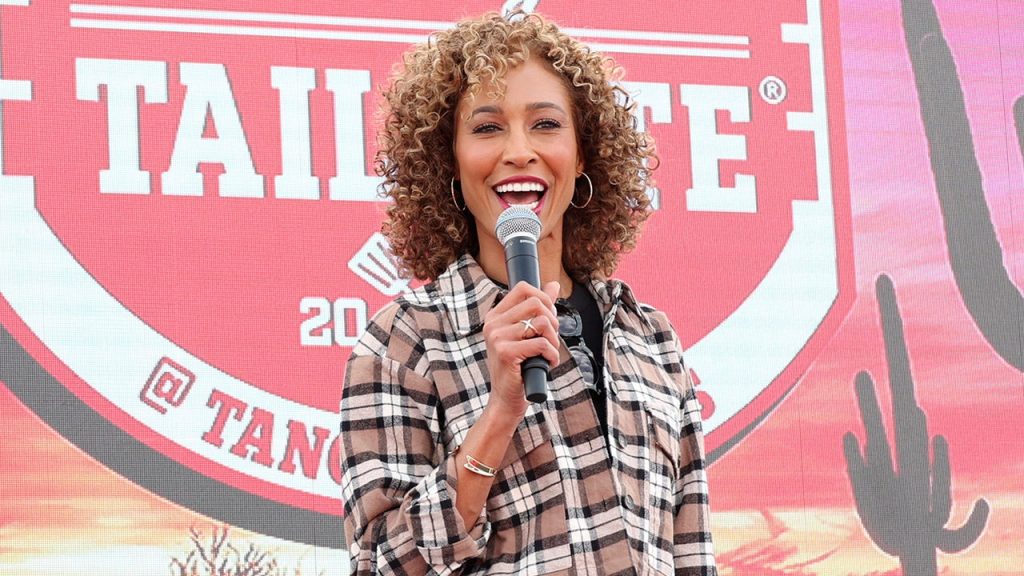Former ESPN broadcaster Sage Steele has vehemently criticized her former employer for its decision to omit the national anthem from its main channel broadcast of the Sugar Bowl, following a terrorist attack in New Orleans the day before the game. Steele, appearing on “OutKick the Morning,” expressed her astonishment at the network’s explanation of “timing issues” for the omission, labeling the decision as “egregious” and a blatant disregard for the suffering of the community. She argued that the network’s proximity to the site of the attack, coupled with the magnitude of the tragedy, should have superseded any logistical concerns related to the broadcast schedule. Steele contrasted the network’s decision with the immense grief and trauma experienced by the city, asserting that ESPN deserved the widespread criticism it received for its insensitivity.
Steele further contended that ESPN’s subsequent decision to air a pregame prayer during the Cotton Bowl was a direct response to the backlash received over the Sugar Bowl anthem omission. While acknowledging the importance of prayer and expressing her personal commitment to it, she questioned the network’s motives and timing, suggesting it appeared to be a reactive measure rather than a genuine expression of solidarity. Steele criticized the network for conflating the prayer for the New Orleans victims with a prayer for victims of California wildfires, implying a belated and perhaps opportunistic attempt to address the earlier criticism. She advocated for consistency in the network’s actions, emphasizing the need to prioritize human compassion over business considerations, particularly in times of tragedy.
Steele’s critique underscored a broader concern about the perceived decline of ESPN from its former prominence. She linked the network’s handling of the Sugar Bowl anthem situation to a larger trend of prioritizing business interests over human empathy, suggesting that this incident was symptomatic of a deeper malaise within the organization. Steele’s comments reflect a sentiment shared by many who believe that the network has strayed from its original mission and values, prioritizing commercial considerations over journalistic integrity and community sensitivity. Her disappointment stemmed not just from the isolated incident but also from what she saw as a broader shift in the network’s culture and priorities.
Steele’s remarks highlight the delicate balance that broadcasters must strike between adhering to programming schedules and responding to unforeseen events of significant human impact. The decision to omit the national anthem, particularly in the immediate aftermath of a local tragedy, can be perceived as insensitive and dismissive of the community’s pain. Conversely, the decision to air a pregame prayer, while potentially well-intentioned, can be construed as a reactive public relations maneuver rather than a genuine expression of sympathy. The timing and context of such decisions are crucial, and broadcasters must carefully consider the potential impact on the affected community.
The controversy surrounding ESPN’s handling of the Sugar Bowl anthem underscores the evolving role of sports broadcasting in a rapidly changing media landscape. With the rise of social media and the 24-hour news cycle, broadcasters face increasing pressure to respond to real-world events in real-time. This often requires difficult decisions about how to balance pre-planned programming with breaking news and unfolding tragedies. The incident also highlights the heightened scrutiny faced by media organizations in an increasingly polarized environment, where even seemingly minor decisions can become the subject of intense public debate and criticism.
The incident involving the Sugar Bowl anthem provides a valuable case study for broadcasters navigating the complexities of covering sports in the context of real-world events. It underscores the importance of clear communication, sensitivity to community needs, and a commitment to ethical decision-making. Moving forward, broadcasters must strive to strike a balance between their commercial interests and their responsibility to serve as a source of information and connection for their viewers, particularly during times of crisis and tragedy. The incident serves as a stark reminder that sports, while a source of entertainment and passion, often intersects with broader societal issues and human experiences, requiring broadcasters to approach their coverage with sensitivity and awareness.

